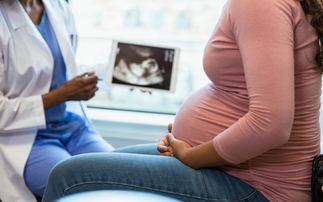The four most common cancers, breast, prostate, colorectal and lung, are affecting 80,000 people diagnosed before they turn 45, research has revealed.
The research from Macmillan Cancer Support and Public Health England's National Cancer Intelligence Network (NCIN) was revealed ahead of the NICN Cancer Outcomes Conference in Belfast.
There are around 66,500 women with breast cancer who were diagnosed before the age of 45.
People under 45 diagnosed with the four cancers account for 10% of new cancer cases, and around 30,000 of those diagnosed before 45 have lived more than ten years after their diagnosis.
For prostate and lung cancers there were 550 and 2,000 diagnosed before the age of 45 respectively with these conditions.
Macmillan has warned that side effects from these cancers can linger for years or even for the rest of the patient's life.
A separate study by Cancer Research and NCIN has found that patients who receive an emergency diagnosis are less likely for 19 out of 20 cancer types examined to receive major surgery.
Surgery has the highest impact on cancer survival, the study found that 20% of breast cancer patients had surgery after being diagnoses as emergency patients at hospitals, compared to 80% after a two-week GP referral.
Juliet Bouverie, director of services and influencing at Macmillan Cancer Support, said: "There is without doubt cause to celebrate that a cancer diagnosis does not necessarily mean the death sentence it used to.
"But the sad reality is that many of people of this age may be struggling to hold down a job, support a family, and deal with the emotional impact of cancer whilst also going through treatment.
"What's more, our research shows that many could be doing so for years as they live with and struggle to manage the debilitating side effects of cancer treatment, such as fatigue, pain, problems with mobility or depression with little, if any, support.
"Sadly the NHS isn't set up to support the individual, complex and long term needs people may face when treatment finishes.
"People are usually left to cope alone apart from the occasional follow-up appointment to check that the tumour hasn't come back."
Further Reading:
Holloway Friendly launches breast cancer specific CI app
Has critical illness reached critical mass?
Cancer patients 31% more likely to have a long term condition











